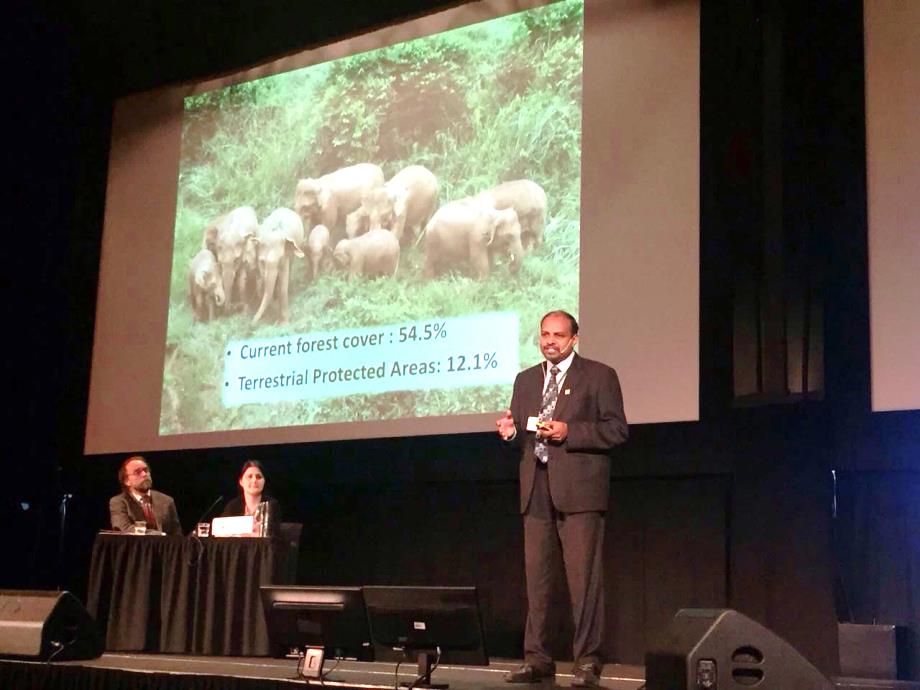
September 19, 2016, by Lisa Chin
Nagu presented a paper at Trondheim Conferences on Biodiversity
This post is contributed by Nagulendran Kangayatkarasu, PhD candidate from the School of Geography.
 Our third year PhD student, Nagulendran Kangayatkarasu or better known as Nagu, had the opportunity to attend the Eighth Trondheim Conferences on Biodiversity held from 31st May to 3rd June 2016 in Norway.
Our third year PhD student, Nagulendran Kangayatkarasu or better known as Nagu, had the opportunity to attend the Eighth Trondheim Conferences on Biodiversity held from 31st May to 3rd June 2016 in Norway.
Since 1993 the Trondheim Conferences on Biodiversity have provided an arena for open dialogue and capacity enhancement among stakeholders on the biodiversity agenda, seeking to create a transparent and scientifically sound basis for addressing current issues. Outputs and recommendations from this conference is presented to the UN Convention on Biological Diversity (CBD) Conference of Parties for further deliberation and adoption as appropriate by nations who are Parties to CBD.
The Eighth Trondheim Conference brought together decision-makers and experts from around the globe to discuss interrelationships between the agriculture and biodiversity sectors and how their policies can address shared problems and provide shared solutions for the achievement of mutually supportive and sustainable outcomes. Nagu attended this conference and had the opportunity to deliver a paper “Spatial planning as a tool to mainstream biodiversity in agriculture and related sectors by identifying conservation priorities”.
In his paper, Nagu shared Malaysia’s experience in elevating poverty which was at 52% at the point of independence in 1957 to just 0.6% in 2014 by among others having affirmative polices in agriculture and plantation sectors. At the same time Malaysia also has embarked on an ambitious Central Forest Spine initiate to link four major forest complexes in Peninsular Malaysia for biodiversity conservation and to maintain ecological functions of these important ecosystems. He underscored the importance of biodiversity mainstreaming and conservation for holistic socio-economic development.
He shared Malaysia’s pledge to the world to maintain 50% of her land area under forest cover in perpetuity. Nagu also highlighted the challenges and issues in implementing the CFS. Towards this end he presented his research work on identifying conservation priorities which can facilitate in addressing these challenges. By having these priority issues identified by a multi shareholder approach, it allows for more focus implementation as well as allow for better resource mobilisation and the governance of biodiversity.
-
Post a comment
